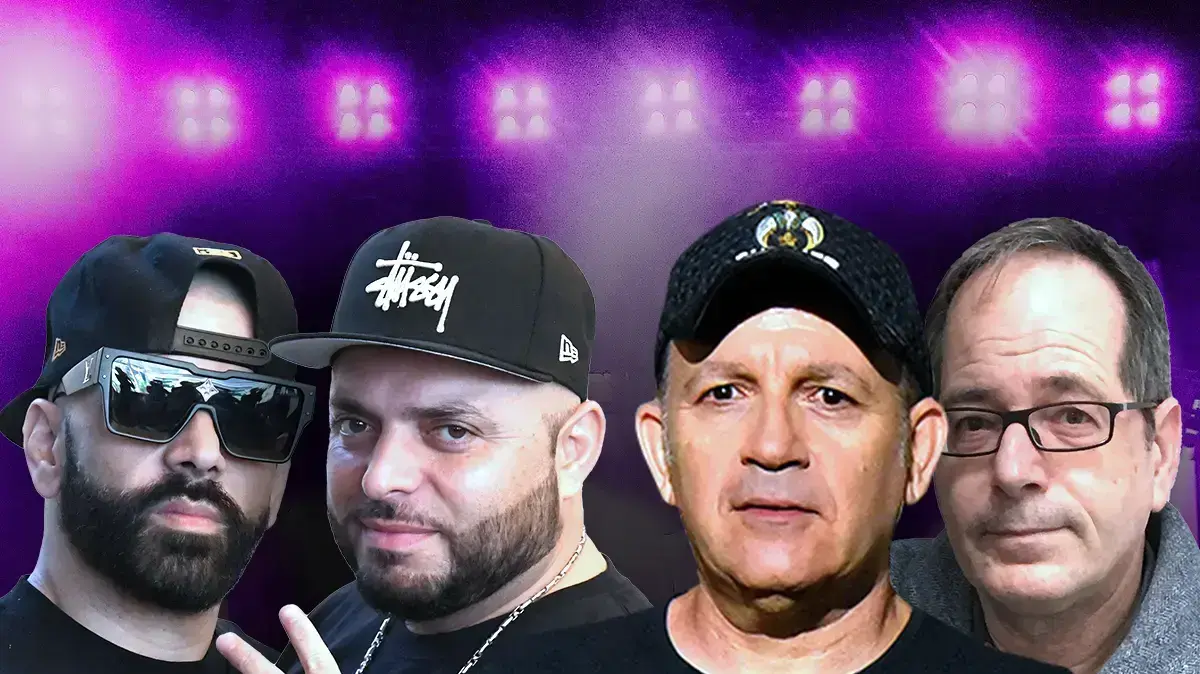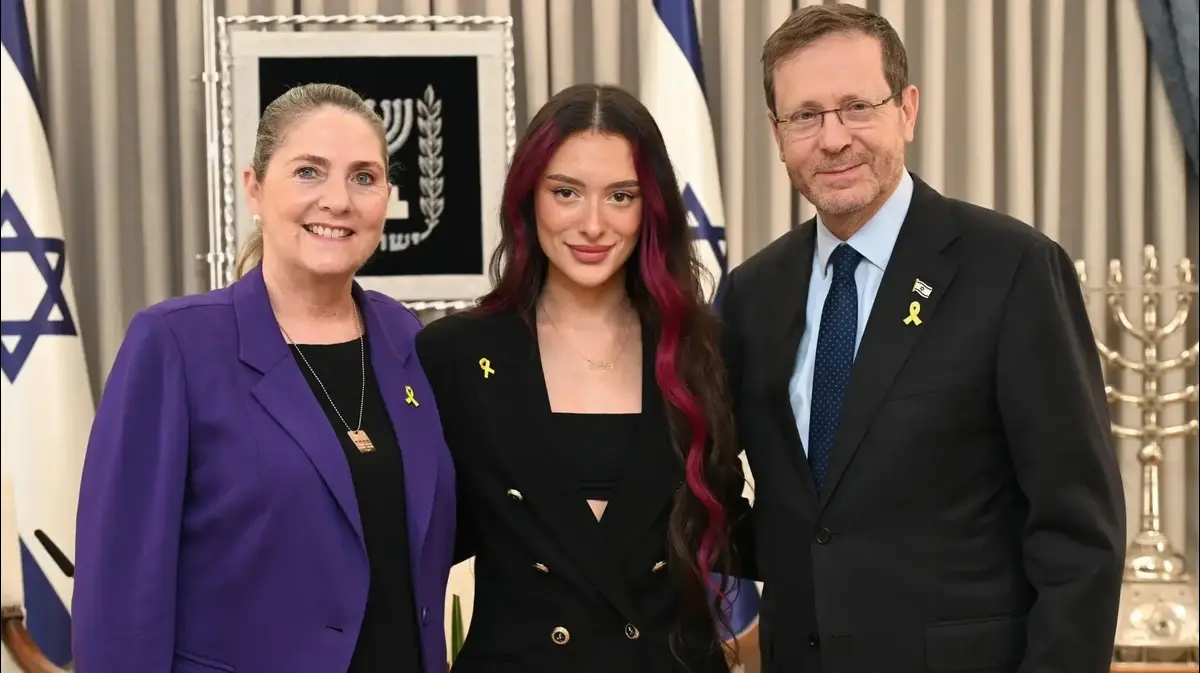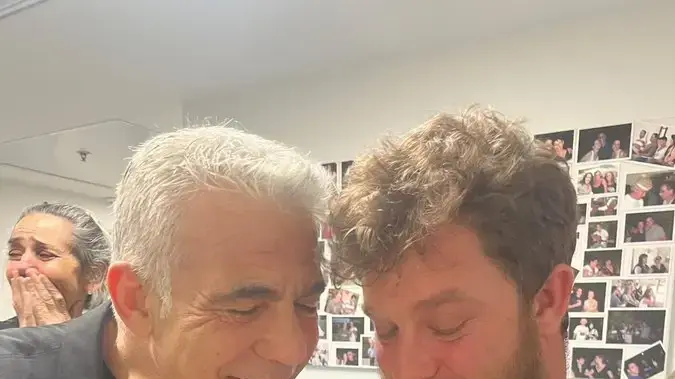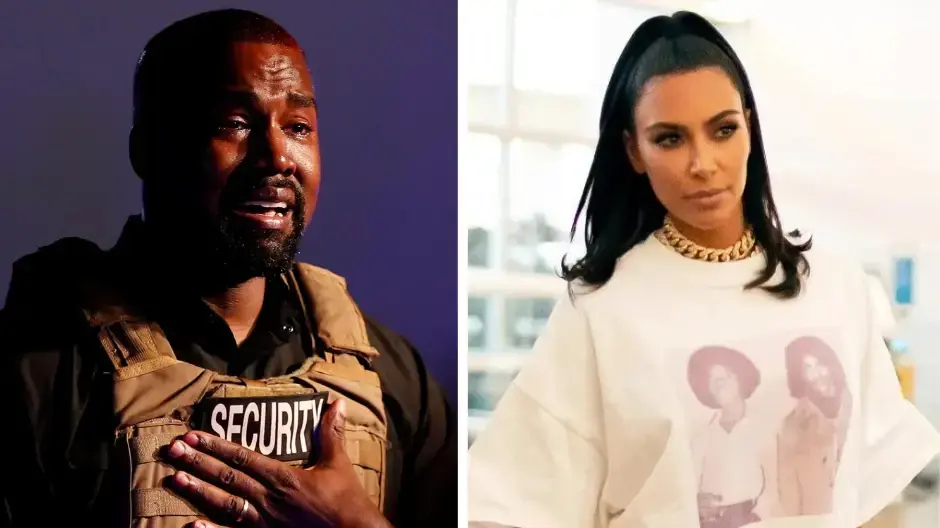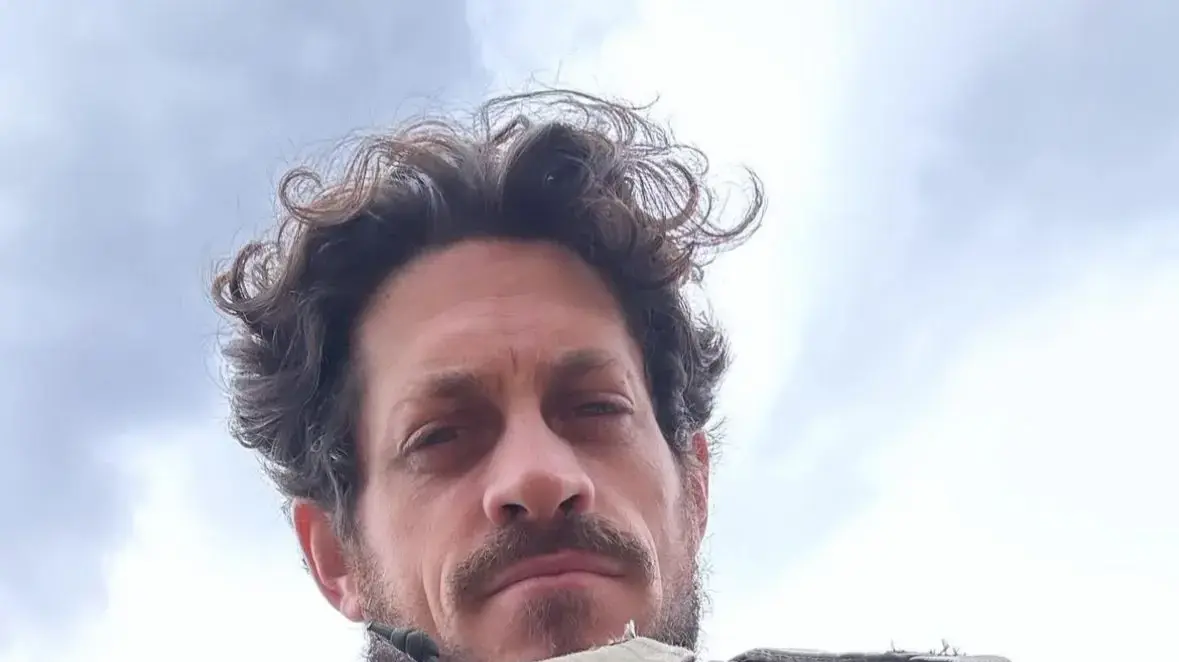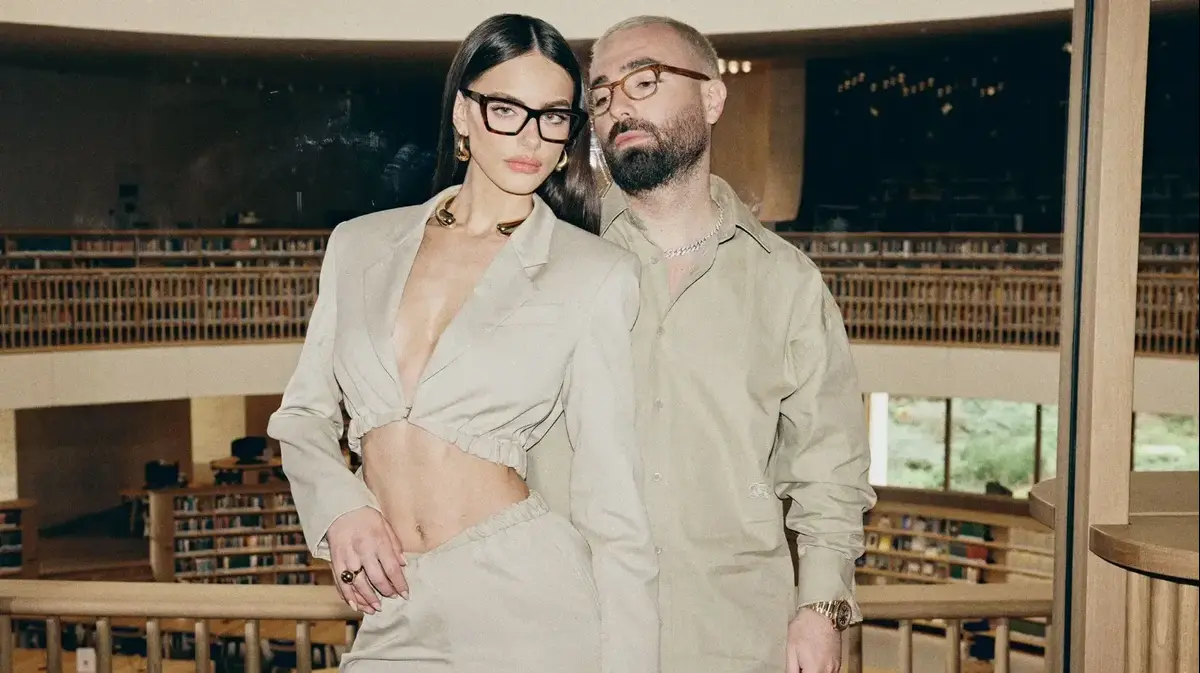Almost 20 years ago, I asked the members of the high windows, if there is still a chance for the union of the mythological composition.
"I don't miss the tall windows," Einstein dismissed the idea.
"I love what we did then, but I'm not in the head of a reunion and parts like that at all. It's so absurd to even talk about it. The record I'm making now is all I'm interested in."
Kraus also rejected the possibility.
"I had thoughts about reunification 15 years ago, but then Einstein didn't want to. Today it's not practical. I want them to remember us as we were, young."
The third
member of the group, Josie Katz, was the only one who sounded enthusiastic at the time, including the recording of new material.
The whole story of the unions in Israeli music - the economic temptation, the emotional motive, the longing of the artists and the audience - and also the great fear of the musicians to touch the myth of the past.
Among the super bands in Israeli music, the high windows were finally left on a narrow list of those who did not finally unite, alongside Benzin and the cap subjects.
Many other bands have decided to do so, and in recent months Israel has seen an extraordinary wave of band and band reunions, returning to one activity or another.
Among these we can mention Ethnics who reunited with Tamir Kalisky, Subliminal and the Shadow who returned to collaborate, Shebek S., Baruch, Mango, the Porcupines, Izvo, Terry Poison, the Nechama Girls, Shulim Youth, the Shwang of the Pitah, Punch, Pollyanna Frank, Mint Chocolate Gum and the redheads.
In addition, voila!
Tarbut has learned that soon the Portrait band, which has been operating over the years on a small scale and partially, will come together for a performance celebrating the 30th anniversary of their debut album, "Hall Merina".
The bands are back.
Ethnics (Photo: Omri Rosengart)
Not all of these unions are the same in scope and form.
Some of them include a new piece, as in the case of Shebek S, while others just return to perform the old songs, as in the case of the Porcupines.
In some of them, a central rib has been replaced, as in the case of marginal youth, while in others, such as Ethnics, it is a return to the original composition.
Some of the bands only reunited for a few songs at others' concerts, such as the girls Nechama or Mango, while others plan to return to full activity.
In this article, the third, in a special series of articles in Vala!
A culture that deals with the phenomenon, we will talk with key figures in the music industry - journalists and club owners, producers, artistic directors and more - and ask them: why is this phenomenon happening right now, and what does it say about the state of the industry as a whole?
For the previous articles in the series:
Will only love win?
This is how Ethnics overcame years of conflict - on the way to the surprising union Ehadot
now: the stories behind the surprising unions in Israeli music
Shaul Mizrahi, the owner of the Barbie Club in Tel Aviv, believes that we are in an unofficial ceremony of farewell to the old generation.
"I think we are in a period of the evacuation-construction process, where we are beginning to replace the entire old generation with a new generation," he says of the great wave of unifications.
"A situation is created where quickly, before this old generation is lost, people make reunions, comebacks or refreshments."
But this is not only the farewell to the old, but also embarrassment towards the present: another explanation that comes to light is the disgust of many listeners with contemporary music.
"The Israeli pop genre has become the visual of everything, it has become a monster," says the music producer and content consultant Noi Elosh, "and at some point guys in their 20s or 30s came and said: Nuno is nice, Noa Kirel is nice, Ana Zak It's nice. But unfortunately, everything is already starting to sound the same, everything is starting to sound too manufactured, and when you don't find what you want in the present - you go back. And the spurs who make disco and rock - there are almost no such things today. Suddenly people want something with a little more meaning , which reminds them of albums that used to be, a longing for something that was less mechanical and cold."
Mizrahi agrees with this position, and vehemently expresses it himself.
"In the last five or six years, almost nothing new and cool has come out," he asserts.
"Today we are fed by a younger generation, which today brings us songs that are not songs but a product, fast food, which comes and goes, there are more so-called 'Geordie productions' - and fewer songs. 'Panthera' and Margie and Static and Ben El and Omer Adam and Agam Bohbut are not songs. This is not a chorus house that we are all used to and know. If they thought that they would bring the cool things, which maybe work at weddings, as a gimmick, and shut us all up - then they were wrong. Young people are looking for the songs. The current generation in music does not provide young people with songs, and this led to the nostalgic wave - When the young people discovered, for example, Monica Sex and Where's the Child and flocked to Yoni Bloch and Scheigtz. Because there used to be songs here. Maybe it used to be better. The unusual thing is that her son Barbie recently released 'Keren Shemesh'. A song, bro, finally a song. Look what's going on from him".
"Young people are looking for the songs".
Shaul Mizrahi (Photo: Reuven Castro)
They sold out three full shows within a day.
The Porcupines (Photo: Courtesy of the Porcupine Band)
Ido ("Zigo") of the Dorvans, who closed three full shows at Hangar 11 in two days, thinks so too.
"As much as pop music from this period is fun - the audience misses songs, melodies and more rounded things," he says.
Did the three sold-outs surprise you?
"There was optimism, but we didn't expect everything to be sold within 24 hours. We've been receiving inquiries for so many years, we understand that the area has been waiting for this, but we didn't know how much the new generation, who are young, love the porcupines. Most of the power in general comes from the new generation."
"We are simply a country of nostalgia"
Above all the explanations hovers the magic word "nostalgia", and everyone agrees on that - which is also relevant to comebacks of other kinds, waves of sympathy for solo artists who are trying to come back and performances that return to masterpiece albums from the past.
"We are simply a country of nostalgia, and this is expressed not only in the comeback of the bands but also in the celebrations of the 25-30th anniversary of the albums," says Mizrahi.
"Aviv Gefen is a classic example of a man who keeps celebrating so and so many years for something he did. Assaf Amdorsky celebrates 20 years for 'Quiet Engines.' Less relevant among the young audience."
Subliminal and the Shadow announce the union on stage
Subliminal and the Shadow announce a reunion at Mati during a Subliminal concert, the Barbie Club in Tel Aviv, October 25, 2022 (Shir Pinto)
"When you pay for a ticket, you pay for your childhood."
Noy Alosh (photo: courtesy of those photographed, Daniel Jacont)
"There is a recurring circle of nostalgia trend in Israeli music, this also happens in the case of Roni Duani with whom I work," says Aloush as well.
"I also attribute the success of the comebacks of the porcupines, Yoni Bloch and Ronnie Duani, to the success of the Facebook and Instagram pages and the parties of 'The Simple', which appeal precisely to those who were children and youth and grew up with them and are now 20 or so years old, and apart from the new things that are happening, they are already at the stage where nostalgia begins to be cool. It will always start from some hipster segment or a segment of 'how cool to party with the music of old Sarit Hadad'. There are also segments of nostalgia on Tiktok, Instagram and memes that dictate it. And children or teenagers who grew up on subliminal and the shadow are now 20-something or 30-something - this is exactly the age when you miss these things you grew up with. Another sign of the nostalgic wave is DJ Assaf Loybel who records with cassettes and is known as the 'king of the cassettes', who plays Avner Gedsi and singers from the past.
"Some of the up-and-coming bands and artists, like Roni and Subliminal, didn't open stages at their peak. And if you didn't open box offices at your peak - why now?", adds Alosh.
"Because now there is the nostalgic ticket, literally. When you pay for the ticket, you pay for your childhood, and it's worth spending that money."
More in Walla!
Only love will win?
This is how Ethnics overcame years of conflict - on the way to the surprising union
To the full article
Nostalgia for the nineties.
Marginal youth with Michael Ben David and without Mikyagi (Photo: Noam Yarkoni)
"Selling is protection".
Haim Shemesh (photo: courtesy of those photographed)
"Out of the jungle where the audience, artists, producers, musicians, musicians and marketing people live, there is a longing that is sometimes hidden and sometimes visible to look for the familiar. A familiar is protection. A familiar is a home," says producer and artistic director Haim Shemesh.
"There are so many options, tens of thousands of new songs come out every year. Some don't manage to float and make room for a familiar one, which in each of us in a different way inspires action. When Shebek S. announces a reunion - then those tens of thousands of people who loved them and connected with them over the years The nineties and early 2000s - it gives them a sense of familiarity, a sense of protection. They can go to a concert and sing all the songs."
"One of the reasons that the wave of reunions is happening right now is that we are entering the areas of round numbers, which mark birthdays," says Shemesh, and indeed, while Alosh points to nostalgia for the early 2000s, a look at the list of the bands that are reuniting shows that the nostalgia for the early 90s is also - The heyday of Israeli rock, which is now celebrating its 30th anniversary - is also present in high doses.
What was it about rock in the early nineties that evokes such strong nostalgia among a large audience?
"There was something very, very authentic at that time. It wasn't a production plan by a producer or one company or another that landed artists from above. It grew from below together with the audience, and it also has weight. All the performances at Roxanne and Blogos were a very strong scene of hunger, stretching boundaries and breaking conventions".
"After the corona, there was a tremendous awakening"
In the background of things, the difficulty of making a living in the culture industry is also very present, especially in its current state.
"The current situation of the music world is that artists have a very, very hard time making money, because they don't have physical products to sell," says Boaz Cohen, a broadcaster on Radio Echo 99 and a member of the band Punch, which recently reunited on its own.
"Records are a niche, CDs don't sell anymore, and the only way for artists to earn is by performing. An active artist who performs all the time, like Barry Sakharoff - has no problem. But to make a lot of money and because the Israeli audience is generally conservative, people look for the familiar things. They like to come to the concert and get to know all the songs. Ihud concerts are like the hit collections you once had. Ihud doesn't usually bring out a new album."
This reality has only intensified following the outbreak of the Corona virus, say a number of industry people, both in relation to the increase in nostalgia, and in regards to the difficulty of making a living.
In this reality, choosing unions is often a safe bet.
"During the long period of the Corona virus, the business was quite stuck," says Cohen, "and sociologically, a society that is in a sense of distress, survival, confusion, and the earth shaking economically and politically - immediately goes to the past, to the feeling that it used to be better and safer. Many in the huge audience have that appeals to the reunions a feeling that the rock that used to be better. And almost every reunion that will be now is sold out. Also the first performances since December 2012 of my band, Punch, in Osenberg, were sold out and the great demand made us go on a national tour. And this does not only happen in the field The unifications are in music but also in the field of lectures. The most requested lectures now that pay the most money and are approached by the most people are lectures on The Beatles, Eric Einstein and even Led Zeppelin. And this is because we are in a very unstable period, a period of distress."
The reunion of the Nehema girls at Yael Deckelbaum's concert in Gagarin, this week
"Reunion shows are like the hit collections you once had."
Boaz Cohen (Photo: Zeev Yanai)
"For two years, the market was dead, and this caused a lot of losses," Alous also says, "many of the older artists were more damaged than contemporary artists, who still had campaigns and online festivals and royalties from Spotify. Against the background of this financial difficulty - suddenly old rivalries are forgotten and want to do I'm sorry. This plague came and told you: our lives are very fragile, one day it may come and everything will end, so why should I fight with this man? And why shouldn't I continue to do what I want? This is another effect of the corona virus. And these two years of the corona virus felt like Some five years, and that accelerated some of the processes of the nostalgic wave."
Things are also reinforced by the economic wing of the industry.
"After the corona virus, we see in the economy as a whole a tremendous awakening and a thirst for the audience to 'live'. After a period of about two years in which we could not enjoy shows, we are witnessing a boom in the field," says Assaf Mor, VP of Marketing and Trade of the Zappa Group. "The need and demand for music performances is Adir.
The audience indulges in nostalgia.
Different festivals like 'Sound System' give place to homages and this nostalgia.
And after one band unites, and you see that it works well - it makes you want more bands to unite."
More in Walla!
Unity now: the stories behind the unification wave
To the full article
"The audience has a thirst to 'live'."
Assaf Mor (photo: courtesy of those photographed)
Wake up the fans from before.
The Union of Shebek S., September (Photo: Omer Kider)
The union concert culture was also created against the background of the growing competition between clubs, producers and artists, says Mizrahi.
"There are more and more players in the market, more and more competition, and everyone is currently trying to be special and reinvent themselves in order to create some kind of economic inertia. There are more players, one competes with this, and that one competes with that, and this leads to prices going up and productions being bought with a lot of money," he Explains.
"Listen to me carefully," Mizrahi continues, "none of the reunions that opened at Live Park or in the hangars were opened without offering the bands a lot of money and a lot of money in advance. And so, Shabak S. was offered a considerable amount of money to unite at Live Park, Yoni Bloch was offered a considerable amount to do You're Caesarea. Tell me, what's going on here? People are trying to move their wheel out of a trend to roll money. This is where the money is buried. But the issue is not whether I'm doing a one-time unification of Shebek S, but whether it has continuity or not."
the healing process
And besides the economic consideration, there are cases where the union is also a corrective experience for the past.
Thus, for example, even though those close to Ethniks claim that the union between Ze'ev Nechama and Tamir Kaliski was due to a financial motive, other sources familiar with the matter emphasize that the process of healing between them is very important to the two, after years of anger, blood and evil, and legal proceedings.
As for the reunion of Shebek S, the band's former director, Haim Shemesh, said that it was a corrective experience.
"After the production of an album which in my opinion is their best and one of the most important in Israeli music, 'Kanaan 2000', I had a plan that I led as a manager to open a box office at Cinerama. I believed in the band, I thought they were the most edgy thing around and that it was impossible not to identify with this edginess, And I made a huge mistake. We failed to sell tickets," he says.
"Obviously this show was a colossal mistake, I can't put my finger on it and tell you why. I open a timeline from then until the last and successful reunion at Live Park - and it warms my heart. For me, they made the correction for what I supposedly spoiled at the time."
Pollyanna Frank Union, July (Photo: Orit Ben Ezer)
The Mango Trio reunites at Rami Kleinstein's concert, November (Photo: David Garnot)
For dessert, what Israeli band or group that has not yet reunited and their friends in life would you like them to reunite?
"I wish Aunty would get together," says Dodi Levy with a side note.
"I really, really like their album, I think it's great and it has some extraordinary guitar parts. Brilliant musicianship. It didn't go over well with the audience, unfortunately."
Assaf Mor from the Zappa group and Ido (Zigo) Ofek from the Porcupines agree.
"It could have been cool. It was fun to see these guys, with all that wealth," says Ofek.
And there are other suggestions.
Nimrod Reshef of Shevak S was happy to see Benzin.
"It was the best band. Such a Haifa band. Guitar, rock and roll, amazing songs," he says and begins to sing "Free is completely alone!".
Producer Haim Shemesh, on the other hand, wants to see the union of the subjects of the cap.
"Make the hat holders unite, and I'll take the production of it," he declares.
Whereas Shaul Mizrahi does not expect anything like that.
"There is no band that I am waiting for its reunion. I am not interested in clinging to the past. Nostalgia is for losers. Nostalgia is for making money, and it does not come from artistic places. What I do want is to take the country 20 steps forward. I want to hear musical development. I want to hear the next new artist."
culture
music
Israeli music
Tags
Noi Aloosh
Shaul Mizrahi
Haim Shemesh
Boaz Cohen
Subliminal
the shadow
Ethnics
Shabak S.
the porcupines
Marginal youth

